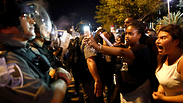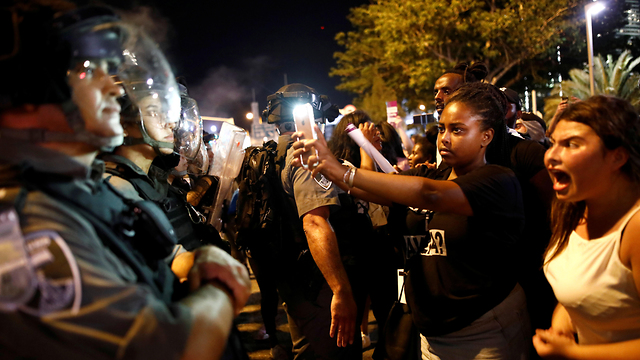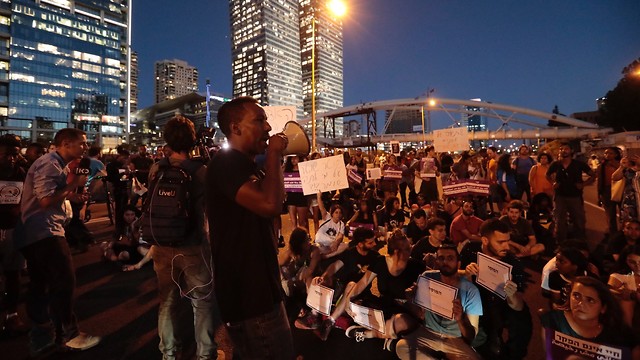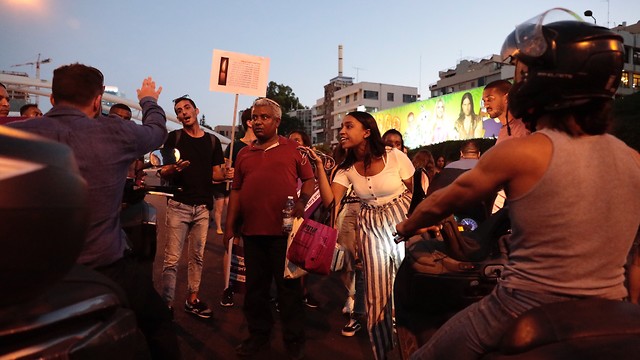
Ethiopians ditch Likud after country-wide summer protests
Analysis: Demonstrations against racism included voices calling for end to support for Likud; this downturn among traditionally Likud-voting community highlights impact of protests on political opinion within the sector, while defectors were met with hostile response from party
Even during the protest, voices were already heard among community members, claiming they will no longer vote for the Likud party and they will even try to convince their parents to do the same.
Did the protest affect the Ethiopian community's voting patterns? An initial analysis of the results, after counting 63.9% of all votes, shows that it indeed has.
A prominent example would be the Kiryat Moshe neighborhood in Rehovot – a neighborhood with a high concentration of Israeli Ethiopians, which saw a very significant drop in Likud voters.
The ruling party received 53% of the neighborhood's votes in April's elections, but only 42% in the Tuesday vote.
Blue and White, which has two candidates from the Ethiopian community on its list for the Knesset, saw its strength more than doubled - standing at 28% in comparison to April's 13%.
Voter turnout in the neighborhood stands at 53%, which is significantly lower than the national voter turnout.
Likud has also saw a decline in power in the predominately Ethiopian Ramat Eliyahu neighborhood in Rishon Lezion, where Likud got only 43% of the votes as opposed to 53% in the previous elections.
Blue and White saw a rise in number of voters in this neighborhood as well, receiving 24% of the votes as opposed to 15%. Voter turnout in the neighborhood stands at 56%.
There are also many members of the Ethiopian community living in several neighborhoods in Kiryat Gat.
In Weizman neighborhood, Likud's strength decreased from 50% to 39% and Blue and White saw a grand leap from 6.5% to 18%, thus becoming the second-largest party in the neighborhood at the expense of Shas.
A similar drop in popularity for the Likud also occurred in HaShoftim neighborhood in Kiryat Gat, where Likud received 38% of the votes in comparison to April's 49%, while Blue and White soared from 13% to 23%.
Likud has seen a big drop in support in Kiryat Gat overall, going from 46% in April to 38% these elections. Blue and White saw its backing increased from 7.4% to 13%.
Some Ethiopian Israelis, who decided to switch allegiance from the traditional Likud ballot, received backlash from other Likud and right-wing voters.
An Israeli Ethiopian from Kiryat Malachi in southern Israel said she was harassed during Election Day for her refusal to vote Likud.
"The number of times I've been called a 'leftist' yesterday has set new records," she said. "I even got a new nickname today: terrorist lover."
Some other refuse to shy away from the criticism and hope this move will improve the community's situation.
"I hope people understand that we won't blindly follow those who ignore our most basic demands like sheep," an Israeli Ethiopian woman from Haifa said.













